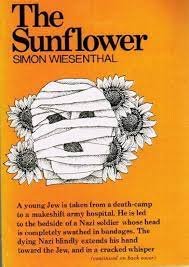Jazzy1
Got A Cracker?
- Location
- Adirondack Region NY
What would you say is the most important lesson you have learned in life?
While not sure it is my most important 'lesson', i come at this from the other side---Believe that the good you do today will come back to you down the road. Even if this rings untrue, I still think it's the right mindset to have...to live your life by.
Much more than most people realize. i've been lucky to learn a few times how something i said or did had been useful, beneficial for someone else. Usually long after i did/said whatever. That was enough to continue with my usual habits.Whether we realize it or not, we serve as an example to those around us through our words and actions.
Never ever lie in court. You will be called out every time.What would you say is the most important lesson you have learned in life?
How forgiveness cleans up so much anger, hurt and opens doors you can't get open.

For what it's worth, something in my life that happened 40 years ago, left an indelible mark, that to this day will often change my mood. Sharing it might be cathartic but that sharing might just as easily distress others, so I keep it to myself. That big stick is not exclusive.Sometimes I think no matter how often I get beaten over the head with the obvious big stick..I just never learn!
The trouble is..I trust people too easily.. and it never fails to sideswipe me...
Learned that one early from Dad.I think learning to be resourceful is one of the most important life lessons. Our lives are a forever changing dynamic, you need to constantly adapt and overcome challenges to be successful.
I had that problem for a long time, till i learned to trust my instincts over people in my early 40's. Some of the worst things happened because i gave someone benefit of the doubt when my gut was screaming not to trust them.Sometimes I think no matter how often I get beaten over the head with the obvious big stick..I just never learn!
The trouble is..I trust people too easily.. and it never fails to sideswipe me...
Yes.forgiveness can only be earned through genuine repentance and restitution
Same, same ..... !!I had that problem for a long time, till i learned to trust my instincts over people in my early 40's. Some of the worst things happened because i gave someone benefit of the doubt when my gut was screaming not to trust them.
This is my biggest lesson also. No matter what the world presents to us, love is always the answer. Always choose love.Despite what we see in the world today, love is still the answer.
I have not had the things done to me that the Holocaust victims had done to them. I may feel different if I had or maybe the same. Some things I have forgiven for did make a difference in my life.View attachment 443735
Simon Wiesenthal a prominent Holocaust survivor and Nazi hunter, explored the complexities of forgiveness in his book "The Sunflower: On the Possibilities and Limits of Forgiveness". The book details a real-life encounter where a dying Nazi soldier sought Wiesenthal's forgiveness for his wartime actions, forcing Wiesenthal to confront the difficult question of whether forgiveness is possible or appropriate in the context of the Holocaust.
Wiesenthal's book and the subsequent discussions it sparked, highlight the diverse perspectives on forgiveness within the Jewish community regarding the Holocaust. Some, like Wiesenthal himself in certain contexts, grapple with the question of whether forgiveness is even possible for such atrocities, while others, like some Holocaust survivors, struggle with the emotional and moral implications of extending forgiveness to those who perpetrated such horrific acts.
The book and related discussions also explore the different understandings of forgiveness. Some argue that forgiveness is a personal process of letting go of grievance, not an endorsement of the actions forgiven. Others, like some Jewish thinkers, emphasize that forgiveness can only be earned through genuine repentance and restitution
For what it's worth, something in my life that happened 40 years ago, left an indelible mark, that to this day will often change my mood. Sharing it might be cathartic but that sharing might just as easily distress others, so I keep it to myself. That big stick is not exclusive.
